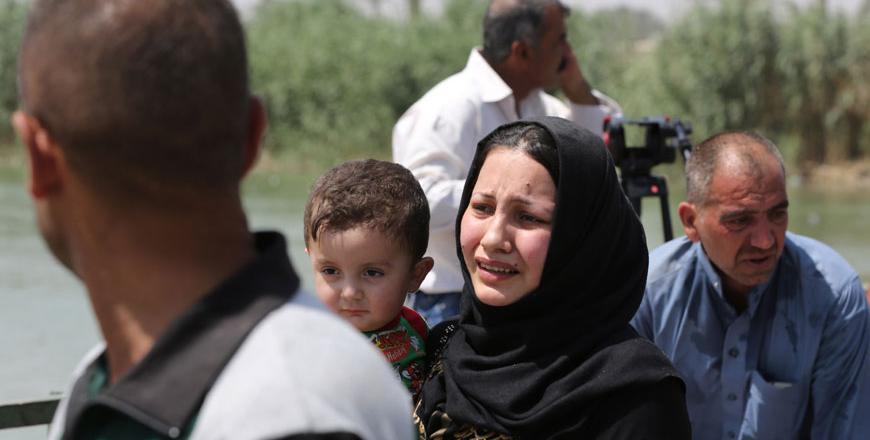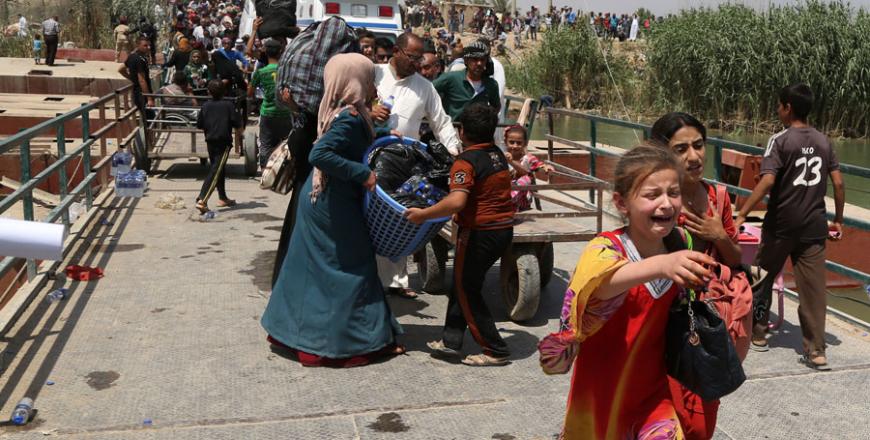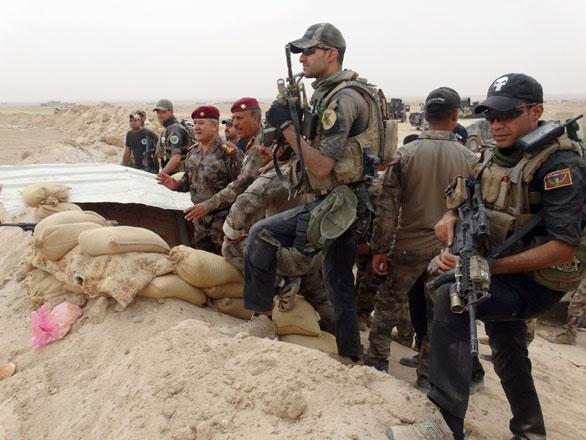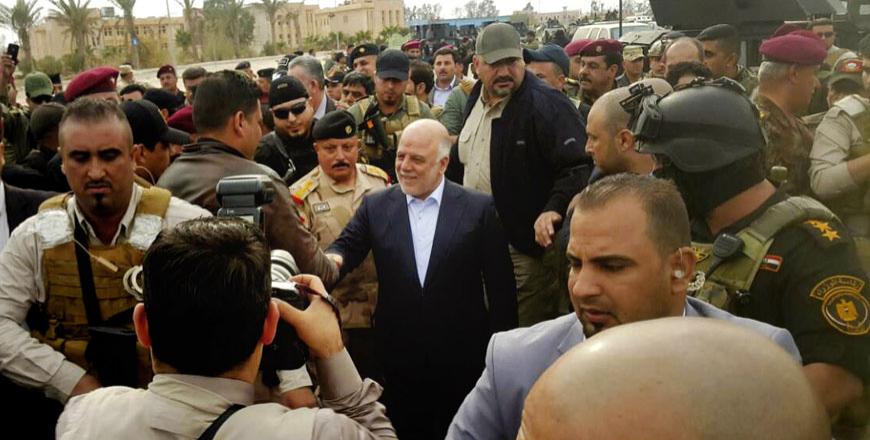You are here
Iraq's Sunni tribes feel deserted after Ramadi fall
By AFP - May 21,2015 - Last updated at May 21,2015

Displaced Iraqis from Ramadi cross the Bzebiz Bridge fleeing fighting in Ramadi, 65 km west of Baghdad, Iraq, Wednesday (AP photo)
BAGHDAD — They were always seen as the key to defeating the jihadists in their bastions but the fall of Ramadi has deepened the distrust that Iraq's Sunni tribes feel towards the government.
Many tribal leaders in Anbar province, of which Ramadi is the capital, said they would continue to fight the Daesh group, not for the sake of a government they say never offered the adequate support, but because they have no other choice.
"The fall of Ramadi is a disaster," said Salah Hassan Al Nada, a tribal leader from Awja, near the northern city of Tikrit, who moved to Kurdistan when Daesh established its grip on Sunni areas last year.
"Ramadi truly was a model," he said, in reference to the force of tribal fighters called "Sahwat" (Awakening) that emerged a decade ago to battle previous incarnations of Daesh.
"They are the ones who fought them and kicked them out of Ramadi and brought normal life back to the city," he said.
The force spread to several parts of Iraq to reach a strength of around 50,000 men initially paid directly by the United States.
Responsibility was transferred to the government in 2008 and the outfit was eventually disbanded after relations soured over former prime minister Nouri Al Maliki's failure to deliver on promises to integrate the Sahwat in the army.
His successor Haider Al Abadi has only just begun to rekindle the Sahwat under a different and more controlled format, by incorporating them into the Shiite-dominated Hashed Al Shaabi organisation that serves as an umbrella for volunteers and militias.
In 2014, the remnants of the extremist groups the tribes had successfully fought returned as the most violent organisation in modern jihad, and this time with more ambitious goals than insurgency warfare.
As Daesh seized territory and proclaimed a "caliphate" that has drawn thousands of foreigners but also been seen by some Iraqis as a lesser evil than sectarian Shiite rule, the tribes that did oppose the jihadists felt they were not getting nearly enough backing.
"The tribes of Anbar did not fail facing Daesh, it's the government that failed because it fears that arming the tribes will turn against it," Anbar tribal sheikh Omar Al Alwani said, using an Arab acronym for Daesh.
He argued that the tribes could have defeated Daesh without the Hashed had they been provided heavier weaponry.
Political solution
Victoria Fontan, a professor at American University Duhok Kurdistan, said trust will be difficult to rebuild without a political solution.
"Morale is now very low among the Sunnis after what happened in Ramadi," she said.
The Shiite-dominated government is blaming Anbaris for not mobilising en masse against Daesh.
"However, it is difficult for Sunnis to actually support the government against Daesh, since the government has been dropping barrel bombs on them," Fontan said.
The previous government carried out air raids, mainly in the Fallujah area of Anbar, using barrel bombs — improvised, unguided devices packed with explosives and scrap metal known for causing indiscriminate damage.
"If Baghdad promises autonomy to Sunni regions in exchange for their support against Daesh, that will be a game changer. A political solution is the only way to actually derail Daesh for good in Iraq," she argued.
Related Articles
The United States said it is considering accelerating the training and equipping of Iraqi tribal forces to fight the Daesh group after the fall of the city of Ramadi.
BAGHDAD — The Daesh terror group executed 70 members of a Sunni tribe allied to the government in western Iraq earlier this week, a tribal l
BAGHDAD — Tribal fighters deployed in Ramadi Tuesday, a step towards providing the reconquered Iraqi city with a force both capable of preve


















